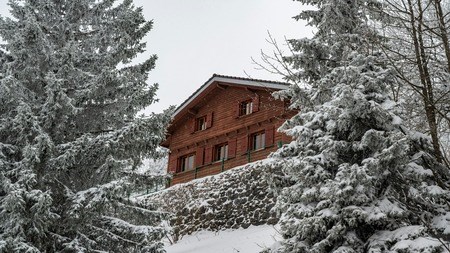Statistics tell us that SA's population figures currently are some 63-million, and that more than half of the population is female.
Most of these women are over 55 years old and are the fastest-growing demographic of homebuyers, says BetterBond. Also noted is that in a market of some 7-million homes, single women own 83,419 more of those than single men. BetterBond also says that 56% of single female buyers in 2023 had been in the market before, so proving that they are becoming repeat buyers.
A new era of empowerment
Across South Africa, women are confidently stepping into homeownership, fundamentally reshaping societal expectations. This transformation is especially impactful in communities historically marginalised by restrictive traditional laws that prevented married women from owning property independently. Today, these barriers are being steadily dismantled, driven by the determination of financially independent women.
Sibongile’s legacy of independence
One such inspiring example is Sibongile Mbuza*. Married under traditional law in the 1960s, Sibongile never imagined owning her own home. Her husband managed the finances, while she accepted her role without question. Yet, everything changed in the mid-1990s after her husband’s death. Rejecting her son’s offer to manage her finances, Sibongile took control of a R120,000 life insurance payout, of which her husband had named her the sole beneficiary, and bought a modest home with land for farming.
Her groundbreaking decision made her one of the first women in her region to own property, profoundly influencing her community. Inspired by her courage, local women sought her mentorship, leading Sibongile to establish a female-focused stokvel dedicated to helping women raise funds for property deposits.
Key insights into the property preferences of South African women:
Suburb popularity: Women predominantly search properties in suburbs like Cradock Heights, Kingswood, Oatlands, Declerqville, and Fort England.
Rental vs sales: 67% of female users prefer browsing rental listings, compared to 62% browsing properties for sale.
Device usage: Most women (63%) access property information via mobile devices, aligning with global digital trends.
Age demographics driving homeownership
Women aged between 25-34 represent the largest demographic group actively searching for property online. This youthful, tech-savvy generation prioritises financial stability and independence, often investing in property before marriage or joint ownership, a global phenomenon known as ‘houses before spouses’.
This is when more young homebuyers choose to purchase a home before marrying or buying jointly with a spouse or partner. Only Realty makes the point that women are in strong support of this trend, based on data from Lightstone last year that confirms that nearly 60% of first-time buyers are female, with the majority being single or divorced.
From an affordability perspective, Standard Bank informs that in 2024, of its 4,831 ‘affordable’ home loan customers, 55% were female. This accounted for some R2,67-billion in loans.
These statistics and case studies paint a compelling picture of the rise of female homeowners, and the expectation is that in 2025, the figures will inch even higher. From breaking down walls to build their dreams to goal-driven financial budgeting, women are forging a path and taking their rightful place as homeowners and decision-makers.
Kitty’s entrepreneurial spirit
One such is Kitty Jacobs*. She had acquired a home economics degree after completing high school and had successfully opened a catering business in her community, largely for weddings and funerals. For as long as she could remember, she had wanted a home to call her own. She would, even as a young child, point out the renovations that people should make to their properties.
This dream never left Kitty, which is why she had a goal of homeownership. Two years after establishing her business, Kitty was ready to use her savings towards a deposit on a piece of land and to build her dream house. It was still within her suburb as she did not wish to move out of the area. It would also include a separate building as a kitchen/prep area for her business.
Kitty was, however, very careful with the building process. The house was smaller than the business area but designed so that she could add on rooms to either structure when more money became available.
Through this achievement, Kitty was able to encourage her twins to become homeowners, and as recent high school graduates, both have decided to save any money they earn to buy their own properties. They continue to live at home and work for their mother, who is a role model for their own homeownership and entrepreneurial dreams.
Rising provinces
Women’s property interests span South Africa, with strong engagement across the Eastern Cape, Western Cape, Free State, Gauteng, KwaZulu-Natal, North West, Mpumalanga, Northern Cape, and Limpopo.
Long-lasting impacts of female homeownership
The increasing financial independence of women through homeownership goes beyond personal security—it reshapes entire communities and influences future generations. Women’s empowerment in property ownership directly benefits children, encouraging their aspirations towards financial independence, entrepreneurial ambitions, and property ownership, regardless of gender.
The statistics at a glance
Here are some key data points illustrating how women are influencing South Africa’s property market:
Female users on property portals: 66% overall
Rental listings preference: 67% women vs 33% men
Mobile searches by women: 63%
Most active female age group: 25-34 years
Highest searched suburbs: Cradock Heights, Kingswood, Oatlands, Declerqville, Fort England
Affordable home loan ownership (2024): Women account for 55% at Standard Bank
As we move through 2025, women’s leadership in real estate is poised to grow even stronger, redefining economic landscapes and societal expectations across South Africa.




